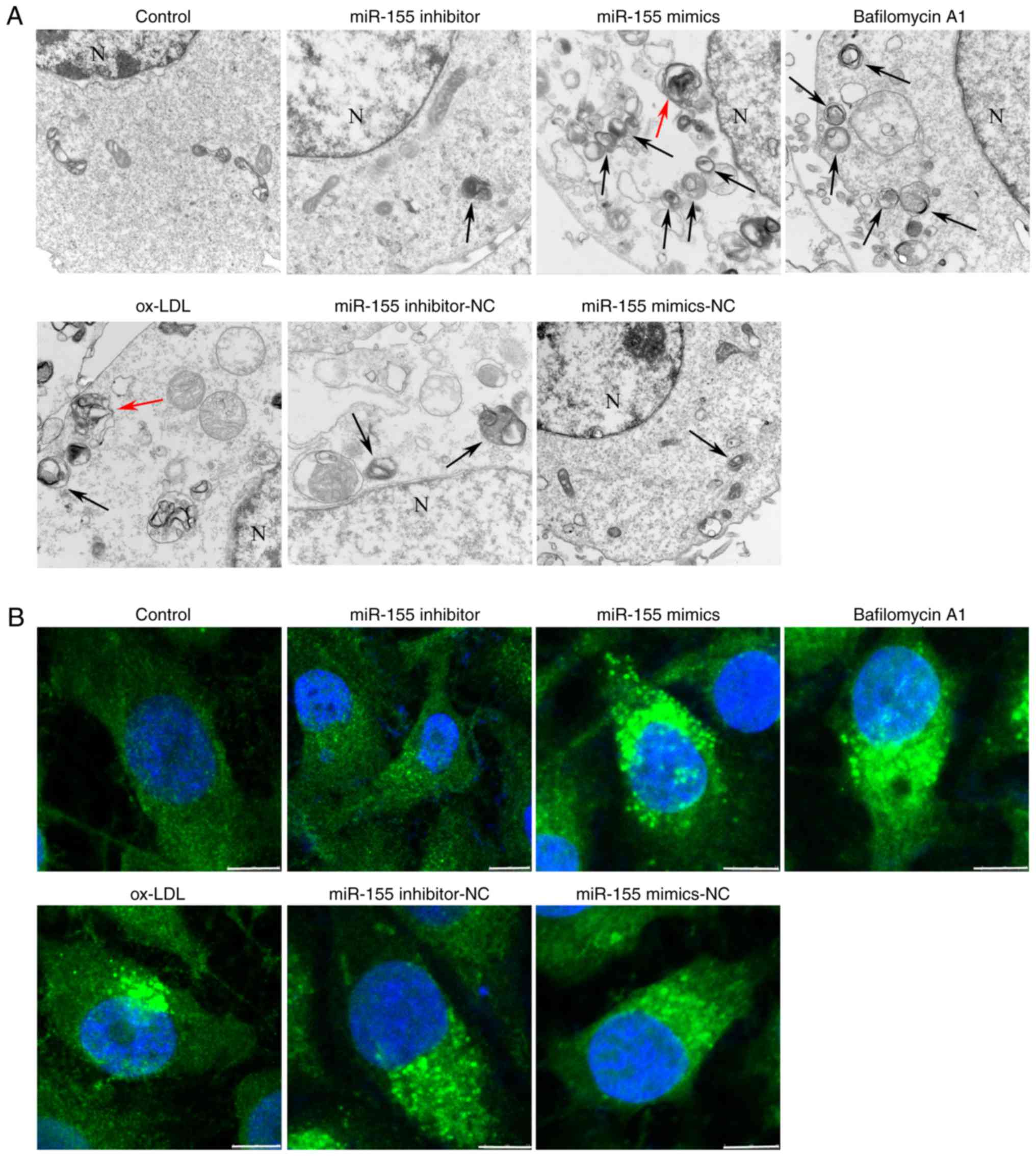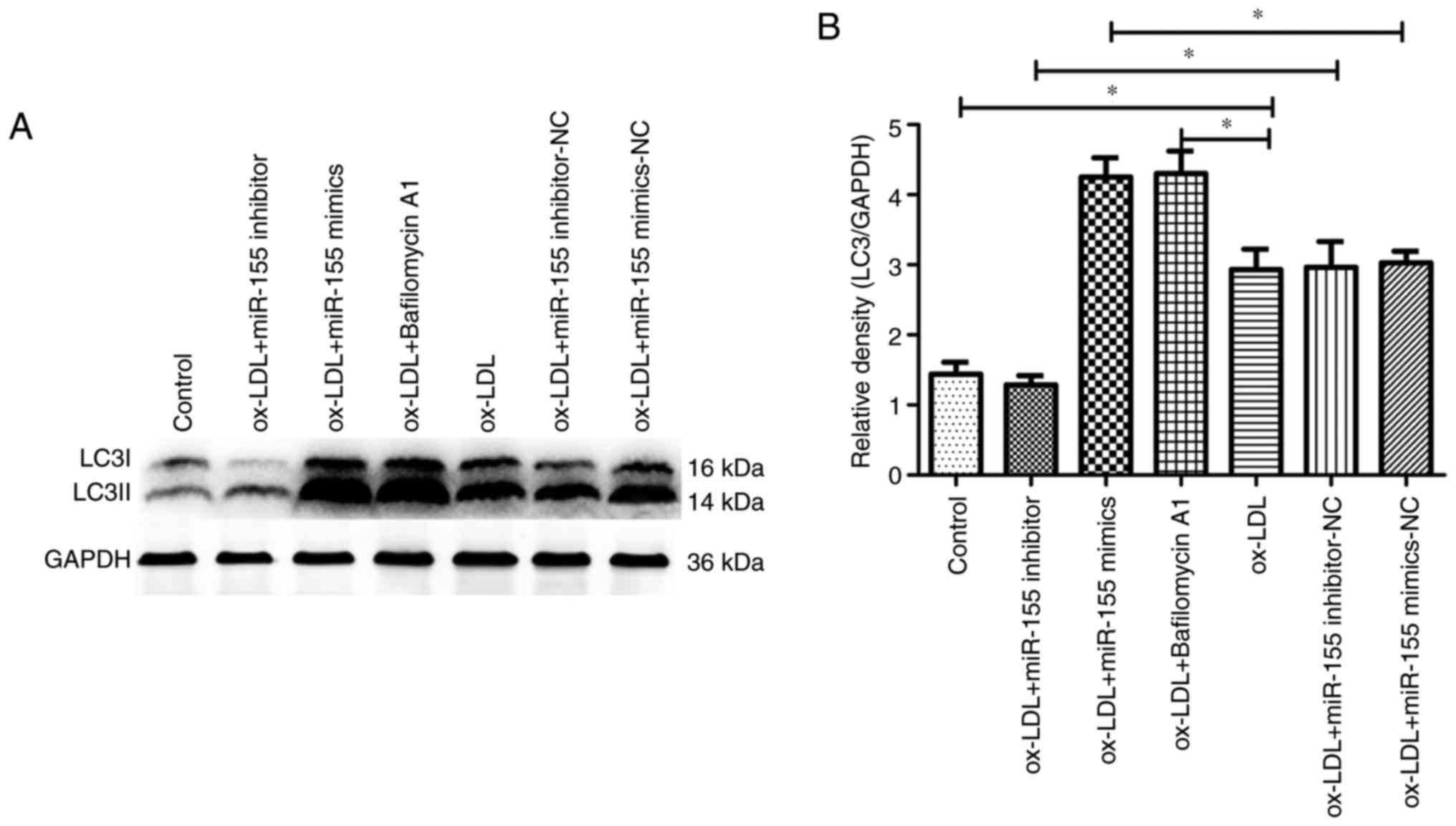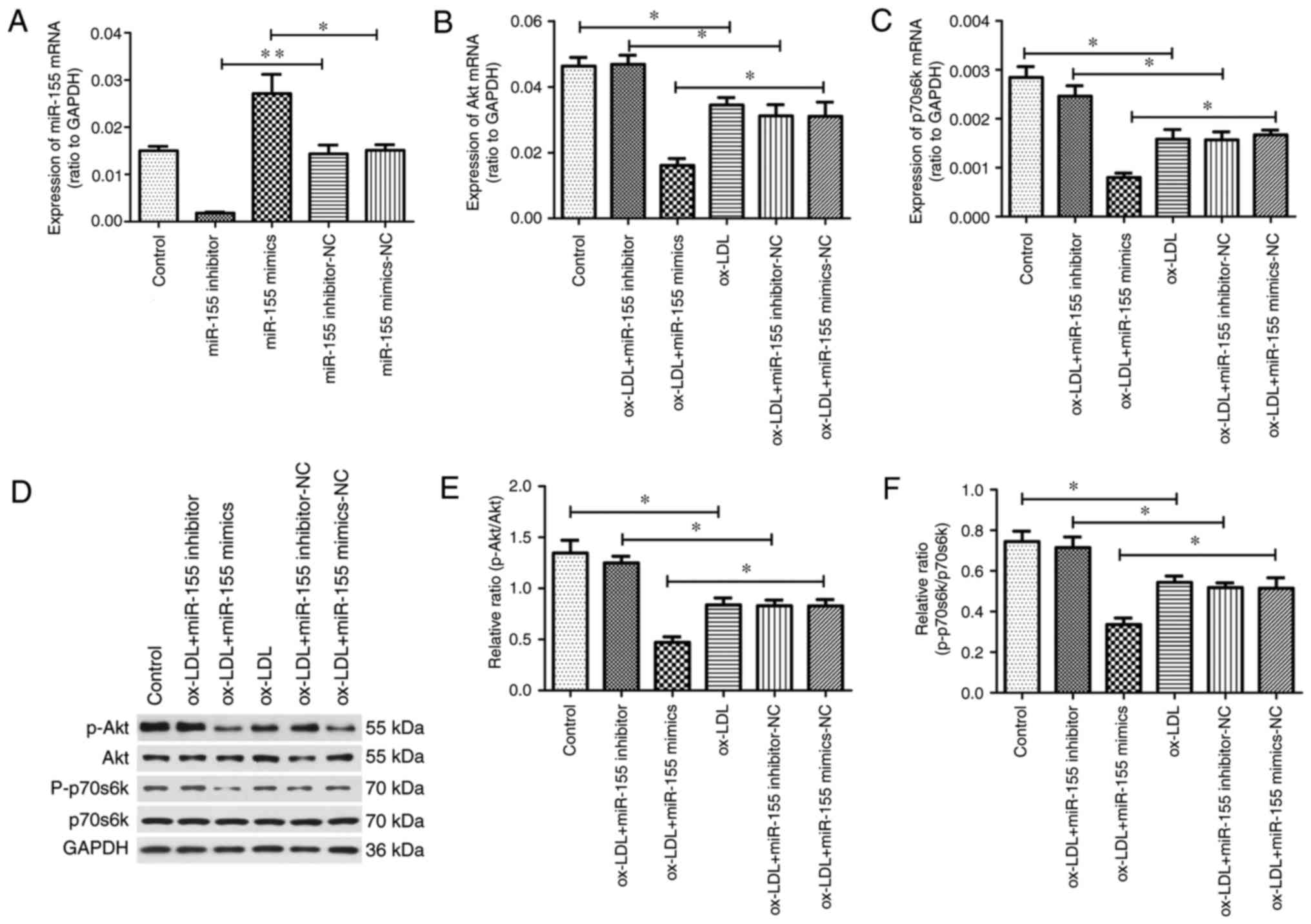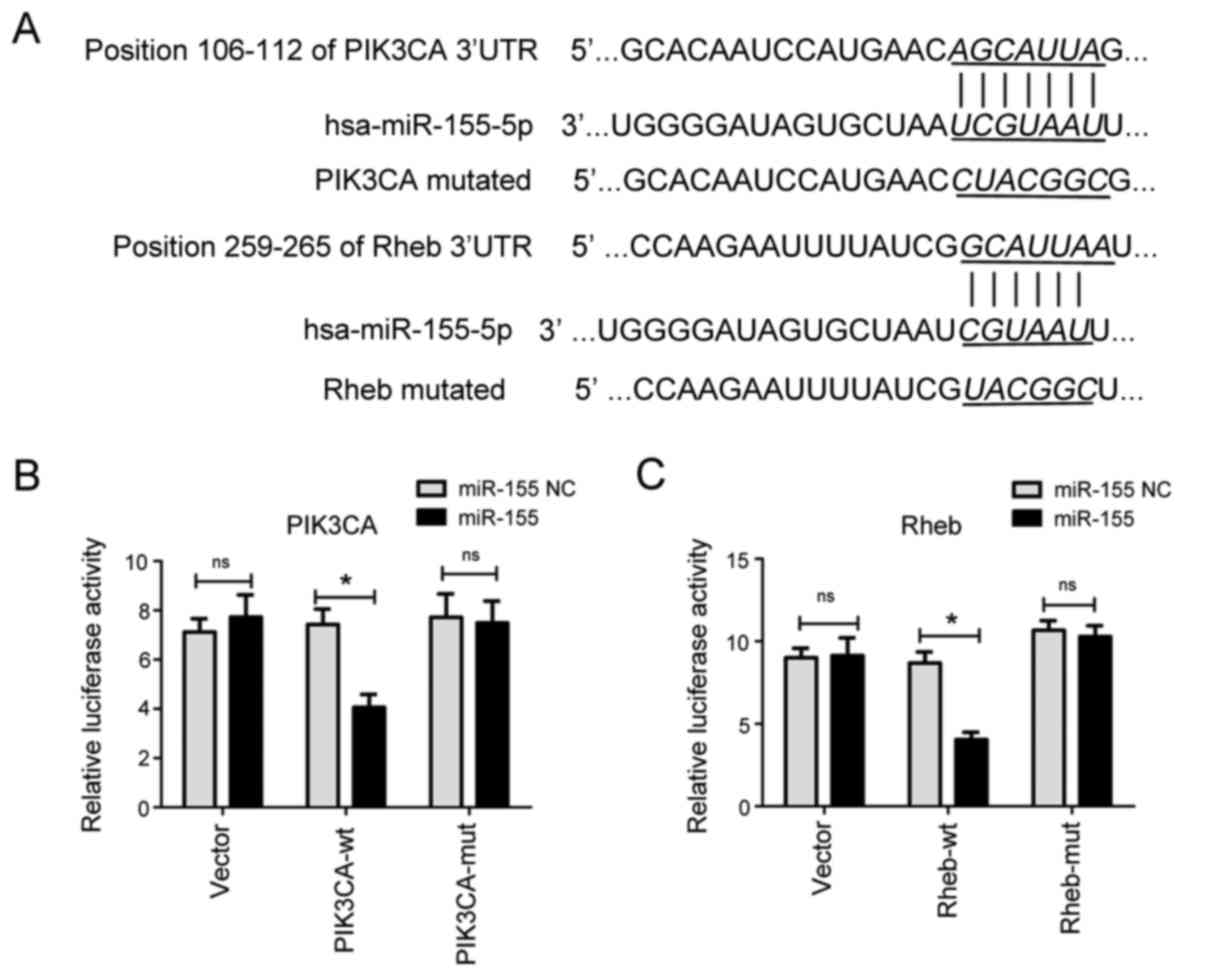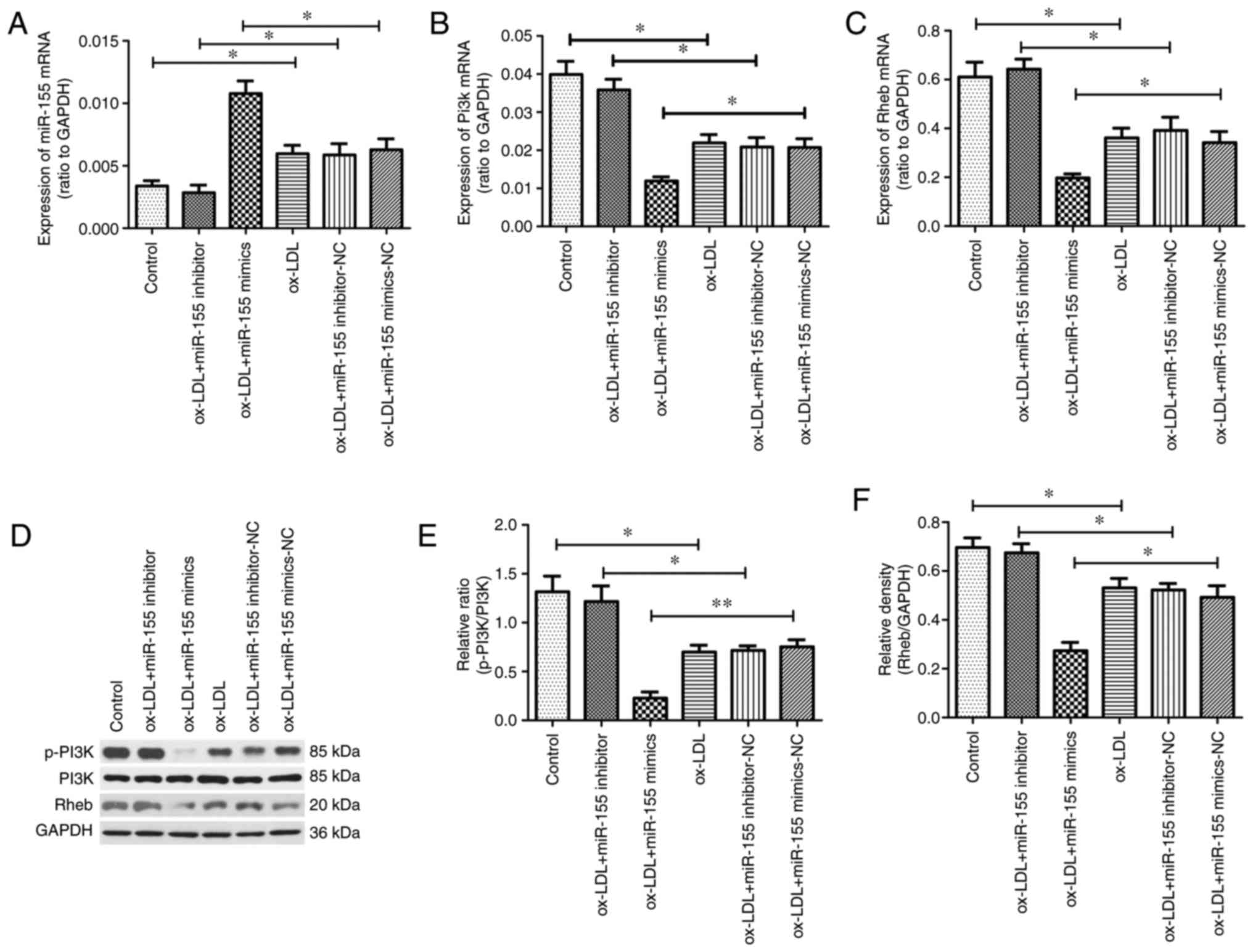|
1
|
Zhong LX, Zhang Y, Wu ML, Liu YN, Zhang P,
Chen XY, Kong QY, Liu J and Li H: Resveratrol and STAT inhibitor
enhance autophagy in ovarian cancer cells. Cell Death Discov.
2:150712016. View Article : Google Scholar : PubMed/NCBI
|
|
2
|
Tang F, Yang TL, Zhang Z, Li XG, Zhong QQ,
Zhao TT and Gong L: MicroRNA-21 suppresses ox-LDL-induced human
aortic endothelial cells injuries in atherosclerosis through
enhancement of autophagic flux: Involvement in promotion of
lysosomal function. Exp Cell Res. 359:374–383. 2017. View Article : Google Scholar : PubMed/NCBI
|
|
3
|
Ding Z, Liu S, Wang X, Dai Y, Khaidakov M,
Romeo F and Mehta JL: LOX-1, oxidant stress, mtDNA damage,
autophagy, and immune response in atherosclerosis. Can J Physiol
Pharmacol. 92:524–530. 2014. View Article : Google Scholar : PubMed/NCBI
|
|
4
|
Ding WX: Uncoupling AMPK from autophagy: A
foe that hinders the beneficial effects of metformin treatment on
metabolic syndrome-associated atherosclerosis? Focus on ‘glucose
and palmitate uncouple AMPK from autophagy in human aortic
endothelial cells’. Am J Physiol Cell Physiol. 308:C246–C248. 2015.
View Article : Google Scholar : PubMed/NCBI
|
|
5
|
Shafique E, Choy WC, Liu Y, Feng J,
Cordeiro B, Lyra A, Arafah M, Yassin-Kassab A, Zanetti AV, Clements
RT, et al: Oxidative stress improves coronary endothelial function
through activation of the pro-survival kinase AMPK. Aging (Albany
NY). 5:515–530. 2013. View Article : Google Scholar : PubMed/NCBI
|
|
6
|
Perrotta I and Aquila S: The role of
oxidative stress and autophagy in atherosclerosis. Oxid Med Cell
Longev. 2015:1303152015. View Article : Google Scholar : PubMed/NCBI
|
|
7
|
Mollace V, Gliozzi M, Musolino V, Carresi
C, Muscoli S, Mollace R, Tavernese A, Gratteri S, Palma E, Morabito
C, et al: Oxidized LDL attenuates protective autophagy and induces
apoptotic cell death of endothelial cells: Role of oxidative stress
and LOX-1 receptor expression. Int J Cardiol. 184:152–158. 2015.
View Article : Google Scholar : PubMed/NCBI
|
|
8
|
Butler DE, Marlein C, Walker HF, Frame FM,
Mann VM, Simms MS, Davies BR, Collins AT and Maitland NJ:
Inhibition of the PI3K/AKT/mTOR pathway activates autophagy and
compensatory Ras/Raf/MEK/ERK signalling in prostate cancer.
Oncotarget. 8:56698–56713. 2017. View Article : Google Scholar : PubMed/NCBI
|
|
9
|
Jiang Y, Kou J, Han X, Li X, Zhong Z, Liu
Z, Zheng Y, Tian Y and Yang L: ROS-dependent activation of
autophagy through the PI3K/Akt/mTOR pathway is induced by
hydroxysafflor yellow a-sonodynamic therapy in THP-1 macrophages.
Oxid Med Cell Longev. 2017:85191692017. View Article : Google Scholar : PubMed/NCBI
|
|
10
|
Zhai C, Cheng J, Mujahid H, Wang H, Kong
J, Yin Y, Li J, Zhang Y, Ji X and Chen W: Selective inhibition of
PI3K/Akt/mTOR signaling pathway regulates autophagy of macrophage
and vulnerability of atherosclerotic plaque. PLoS One.
9:e905632014. View Article : Google Scholar : PubMed/NCBI
|
|
11
|
Gupta R, Arkatkar T, Keck J, Koundinya GK,
Castillo K, Hobel S, Chambers JP, Yu JJ, Guentzel MN, Aigner A, et
al: Antigen specific immune response in Chlamydia muridarum genital
infection is dependent on murine microRNAs-155 and −182.
Oncotarget. 7:64726–64742. 2016. View Article : Google Scholar : PubMed/NCBI
|
|
12
|
Zhang T, Tian F, Wang J, Jing J, Zhou SS
and Chen YD: Endothelial cell autophagy in atherosclerosis is
regulated by miR-30-mediated translational control of ATG6. Cell
Physiol Biochem. 37:1369–1378. 2015. View Article : Google Scholar : PubMed/NCBI
|
|
13
|
Wang B, Zhong Y, Huang D and Li J:
Macrophage autophagy regulated by miR-384-5p-mediated control of
Beclin-1 plays a role in the development of atherosclerosis. Am J
Transl Res. 8:606–614. 2016.PubMed/NCBI
|
|
14
|
Ouimet M, Ediriweera H, Afonso MS,
Ramkhelawon B, Singaravelu R, Liao X, Bandler RC, Rahman K, Fisher
EA, Rayner KJ, et al: microRNA-33 regulates macrophage autophagy in
atherosclerosis. Arterioscler Thromb Vasc Biol. 37:1058–1067. 2017.
View Article : Google Scholar : PubMed/NCBI
|
|
15
|
Chistiakov DA, Orekhov AN and Bobryshev
YV: Chemokines and relevant microRNAs in the atherogenic process.
Mini Rev Med Chem. 18:597–608. 2018. View Article : Google Scholar : PubMed/NCBI
|
|
16
|
Zhang Z, Pan X, Yang S, Ma A, Wang K, Wang
Y, Li T and Liu S: miR-155 promotes ox-LDL-induced autophagy in
human umbilical vein endothelial cells. Mediators Inflamm.
2017:91748012017. View Article : Google Scholar : PubMed/NCBI
|
|
17
|
Livak KJ and Schmittgen TD: Analysis of
relative gene expression data using real-time quantitative PCR and
the 2(-Delta Delta C(T)) method. Methods. 25:402–408. 2001.
View Article : Google Scholar : PubMed/NCBI
|
|
18
|
Wang L, Chen M, Yang J and Zhang Z: LC3
fluorescent puncta in autophagosomes or in protein aggregates can
be distinguished by FRAP analysis in living cells. Autophagy.
9:756–769. 2013. View Article : Google Scholar : PubMed/NCBI
|
|
19
|
Lee WK, Probst S, Santoyo-Sánchez MP,
Al-Hamdani W, Diebels I, von Sivers JK, Kerek E, Prenner EJ and
Thévenod F: Initial autophagic protection switches to disruption of
autophagic flux by lysosomal instability during cadmium stress
accrual in renal NRK-52E cells. Arch Toxicol. 91:3225–3245. 2017.
View Article : Google Scholar : PubMed/NCBI
|
|
20
|
Zhao Q, Liu H, Yao C, Shuai J and Sun X:
Effect of dynamic interaction between microRNA and transcription
factor on gene expression. Biomed Res Int. 2016:26762822016.
View Article : Google Scholar : PubMed/NCBI
|
|
21
|
Olaru AV, Selaru FM, Mori Y, Vazquez C,
David S, Paun B, Cheng Y, Jin Z, Yang J, Agarwal R, et al: Dynamic
changes in the expression of MicroRNA-31 during inflammatory bowel
disease-associated neoplastic transformation. Inflamm Bowel Dis.
17:221–231. 2011. View Article : Google Scholar : PubMed/NCBI
|
|
22
|
O'Donnell KA, Wentzel EA, Zeller KI, Dang
CV and Mendell JT: c-Myc-regulated microRNAs modulate E2F1
expression. Nature. 435:839–843. 2005. View Article : Google Scholar : PubMed/NCBI
|
|
23
|
Yamakuchi M and Lowenstein CJ: MiR-34,
SIRT1 and p53: The feedback loop. Cell Cycle. 8:712–715. 2009.
View Article : Google Scholar : PubMed/NCBI
|
|
24
|
Liu H, Lin H, Zhang L, Sun Q, Yuan G,
Zhang L, Chen S and Chen Z: miR-145 and miR-143 regulate
odontoblast differentiation through targeting Klf4 and Osx genes in
a feedback loop. J Biol Chem. 288:9261–9271. 2013. View Article : Google Scholar : PubMed/NCBI
|
|
25
|
Wei X, Cheng X, Peng Y, Zheng R, Chai J
and Jiang S: STAT5a promotes the transcription of mature
mmu-miR-135a in 3T3-L1 cells by binding to both miR-135a-1 and
miR-135a-2 promoter elements. Int J Biochem Cell Biol. 77:109–119.
2016. View Article : Google Scholar : PubMed/NCBI
|
|
26
|
Chen L, Jiang K, Jiang H and Wei P:
miR-155 mediates drug resistance in osteosarcoma cells via inducing
autophagy. Exp Ther Med. 8:527–532. 2014. View Article : Google Scholar : PubMed/NCBI
|
|
27
|
Liu F, Nie C, Zhao N, Wang Y, Liu Y, Li Y,
Zeng Z, Ding C, Shao Q, Qing C, et al: MiR-155 alleviates septic
lung injury by inducing autophagy via inhibition of transforming
growth factor-β-activated binding protein 2. Shock. 48:61–68. 2017.
View Article : Google Scholar : PubMed/NCBI
|
|
28
|
Zeng S, Song H, Chen Y, Xie W and Zhang L:
B7-H4-mediated immunoresistance is supressed
by PI3K/Akt/mTOR pathway inhibitors. Mol Biol.
50:887–894. 2016. View Article : Google Scholar
|
|
29
|
Cheng KY and Hao M: Mammalian target of
rapamycin (mTOR) regulates transforming growth factor-β1
(TGF-β1)-induced epithelial-mesenchymal transition via decreased
pyruvate kinase M2 (PKM2) expression in cervical cancer cells. Med
Sci Monit. 23:2017–2028. 2017. View Article : Google Scholar : PubMed/NCBI
|
|
30
|
Nivon M, Richet E, Codogno P, Arrigo AP
and Kretz-Remy C: Autophagy activation by NFkappaB is essential for
cell survival after heat shock. Autophagy. 5:766–783. 2009.
View Article : Google Scholar : PubMed/NCBI
|
|
31
|
Shintani T and Klionsky DJ: Autophagy in
health and disease: A double-edged sword. Science. 306:990–995.
2004. View Article : Google Scholar : PubMed/NCBI
|
|
32
|
Huang X, Shen Y, Liu M, Bi C, Jiang C,
Iqbal J, McKeithan TW, Chan WC, Ding SJ and Fu K: Quantitative
proteomics reveals that miR-155 regulates the PI3K-AKT pathway in
diffuse large B-cell lymphoma. Am J Pathol. 181:26–33. 2012.
View Article : Google Scholar : PubMed/NCBI
|
|
33
|
Wan G, Xie W, Liu Z, Xu W, Lao Y, Huang N,
Cui K, Liao M, He J, Jiang Y, et al: Hypoxia-induced MIR155 is a
potent autophagy inducer by targeting multiple players in the MTOR
pathway. Autophagy. 10:70–79. 2014. View Article : Google Scholar : PubMed/NCBI
|
|
34
|
Wang J, Yang K, Zhou L, Minhaowu, Wu Y,
Zhu M, Lai X, Chen T, Feng L, Li M, et al: MicroRNA-155 promotes
autophagy to eliminate intracellular mycobacteria by targeting
Rheb. PLoS Pathog. 9:e10036972013. View Article : Google Scholar : PubMed/NCBI
|















